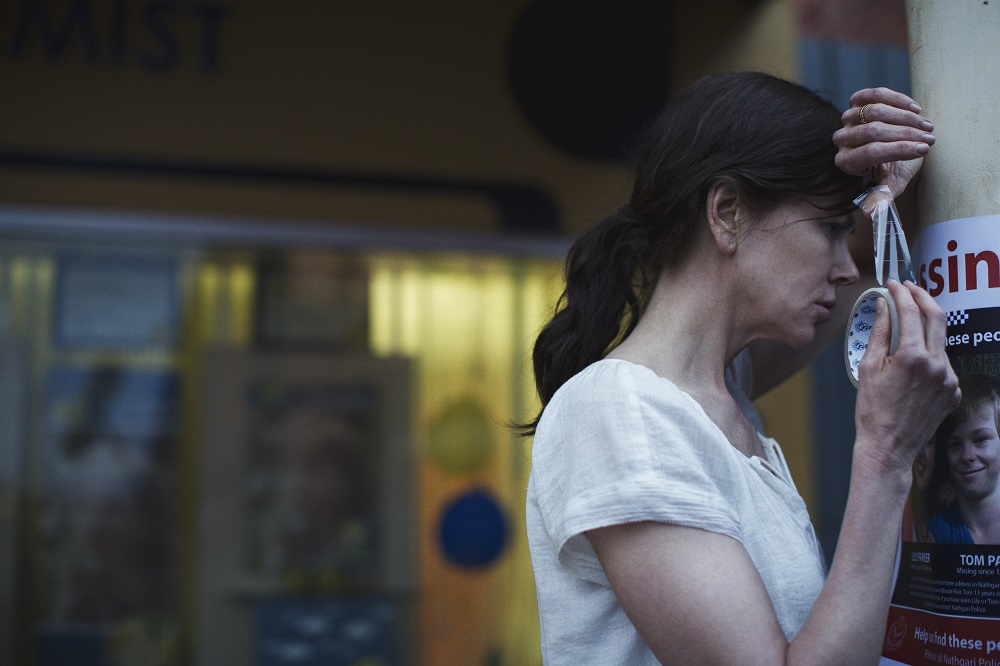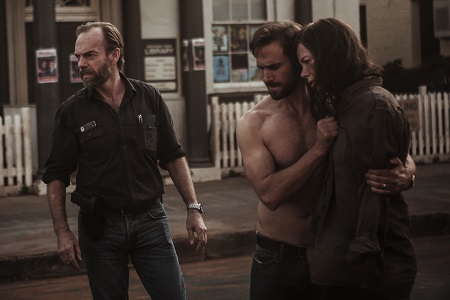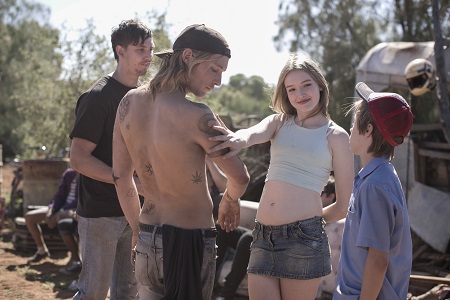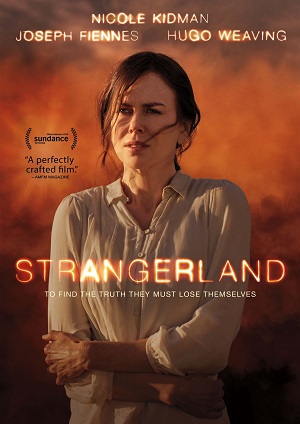
a SIFF 2015 review
Kidman Strong in Otherwise Frustrating Strangerland
It is interesting to me that, even with an Academy Award and two additional nominations on her resume, people often have to be reminded just how terrific an actress Nicole Kidman by all measurable accounts is. I get it. Movies like Before I Go to Sleep, Grace of Monaco and Trespass don’t help matters. Be that as it may, she’s been turning in exemplary performances in variety of films in a number of differing genres for over three decades now, and one look at her filmography more than testifies to this.
A pity, then, that one of these said reminders had to come in the form of Strangerland, a well-meaning, initially intriguing Australian thriller set in the grim, dusty wilds of the Outback that never lives up to either its scenario’s promise or the phenomenal performance being turned in by its above-the-title star. That’s not hyperbole, either. Kidman nearly elevates this film to something essential almost entirely on her own. This is a magnetic, impossibly complex star turn that comes close to being one of the Oscar-winner’s best, and truly the only reason I’m talking about this at all is entirely thanks to her.
For reasons they’d rather not discuss, pharmacist Matthew (Joseph Fiennes) and his wife Catherine (Kidman) have been forced to move out of the city and into the rundown Outback community of Nathgari along with their teenage children Tommy (Nicholas Hamilton) and his older sister Lily (Maddison Brown). When the kids go wandering off just as a massive storm covers the town in thick, red dust, the parents are understandably distraught. When they cannot be found, when things start to look more suspicious than just a pair of lost children stumbling off into the great unknown when they shouldn’t have, the entire town begins to wonder what secrets Matthew and Catherine are hiding.
Even at 112 minutes, Michael Kinirons and Fiona Seres’ screenplay feels undercooked. It’s as if large swaths of narrative are missing, which is odd considering how much exposition has to be delivered by various characters at the most inopportune of times. I swear, the only reason Hugo Weaving (playing the local police detective) is in this thing is to observe and report things that either don’t need an explanation or are so convoluted talking about them only makes matters worse.
It does not help that Fiennes looks hopelessly lost as Matthew. His character, by design, is a mess out of the box. Problem is, his emotional constipation doesn’t make him interesting or that much fun to be around. Whatever is going on he obviously blames both his wife and his daughter to the point he apparently cannot stand to be around either of them. With that being so, it’s impossible not to speculate (at least initially) as to why they’re still together trying to make a go of it as a family in the first place.
As to that secret, it’s easy to go wild as to what it could possibly be, imagine what that twist is that Kinirons and Seres have in store. All of which makes it even more dispiriting when the truth finally does come out and the answer is both way too obvious as well as being not remotely interesting. It’s all build with no payoff, making all that’s happened mean a heck of a lot less than it should have considering the pain, suffering and effort it takes to get there.
Same time, director Kim Farrant makes spectacular use of the dystopian, suitably desolate Australian landscape, and I’d imagine she’s purposefully utilizing visual callbacks to Outback classics like Nicolas Roeg’s Walkabout, Peter Weir’s Picnic at Hanging Rock and, this is obvious, Fred Schepisi’s A Cry in the Dark. The filmmaker’s use of P.J. Dillon’s suitably ethereal cinematography is mesmeric, as is Keefus Ciancia’s (As Above, So Below) extraordinarily restrained score. She also gets two superb performances from her youngest stars, Brown in particular, but as they’re absent for a large swath of the plot neither is given near as much of a chance to make an imprint as it initially felt like they were going to.
But it is Kidman who makes this movie worth talking about. She dominates, and while thankfully free of any “dingo ate my baby!” embellishment she still gets just as much of an opportunity to chew scenery as Grande Dame Meryl did in that aforementioned 1988 Oscar-nominee. It’s almost enough to make watching Strangerland worth a viewer’s time. Almost, but not quite, because in the end there’s just too much about the film that’s annoyingly nondescript and incomplete for it to maintain one’s interest all the way through until the end. What a shame.
Film Rating: 2 (out of 4)








